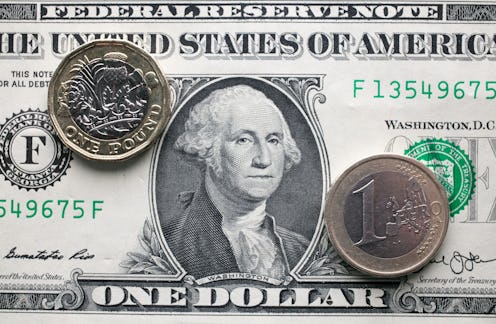News
Why Tax Day For Native Americans Can Be Such An Infuriating Time

Every April, it’s the same story. A non-native person confronts me with their belief that I don't pay taxes. Let me dispel that myth right now: Native individuals who belong to federally recognized tribes have dual citizenship as tribal members and American citizens. We do pay federal income tax. We are also taxed as patrons and consumers of non-native businesses. We do not live in a bubble.
That said, the issue of tax between states and tribes has long been rife with conflict. Indigenous nations existed on American soil for thousands of years before Columbus landed, and so tribes have jurisdiction over their own lands and membership: By federal law, tribes exist as domestic sovereign nations. As a result, tribes have the power to tax through tribal businesses within their boundaries, and are technically exempt from federal and state tax.
So, are tribes as sovereign entities technically tax-exempt? Yes. Do their members pay taxes? Yes.
My own tribe, the Sisseton-Wahpeton Oyate, has wrangled with North and South Dakota over tax agreements.
This is where things get complicated. For Native Americans, taxation also occurs through revenue sharing: States want a piece of tax revenue that tribes collect, especially through gaming ventures on the reservation. (There are currently more than 566 federally recognized tribes, and 34 states that contain tribal lands within their borders.) The federal government oversees and regulates this relationship between states and tribes. Tribes enter into gaming compacts with the state that surrounds their lands in order to do business.
These gaming compacts are based on the Indian Gaming Regulatory Act (ICRA) of 1988. This legislation prohibits states from imposing taxes on tribes, but encourages states to negotiate tax agreements with tribal gaming enterprises.
In short, this legislation simultaneously acknowledges tribal sovereignty while infringing upon it.
All that said, tax agreements between tribes and states can be contentious. Disputes can and have been downright combative, prompting physical standoffs, violent protests, and federal investigations. The primary focus of these clashes between states and tribes? The taxation of tobacco and gasoline.
Like I said, we do not live in a bubble. Tribal casinos realized they could sell cigarettes and gasoline at a cheaper price because of tax exemption. Much of the business tribes receive at their casinos is non-native. States want in on those returns, which amount to millions of dollars each year.
My own tribe, the Sisseton-Wahpeton Oyate, has wrangled with North and South Dakota over tax agreements related to gaming compacts. We have casinos in both states, because our reservation boundaries predate state borders.
Just last month, the Winnebago Tribe of Nebraska cigarette manufacturing operation was raided by officers from the Bureau of Alcohol, Tobacco and Firearms. The focus of the raid was records related to taxation and distribution. The chairman of the tribe stated that he believed the state of Nebraska, which is seeking to gain advantage in a tax dispute with tribes, was behind it.
The law surrounding the issue is ever-evolving, and tax disputes between states and tribes often end up in federal court. In January, a federal judge struck down a challenge to New York cigarette sales taxes by the Seneca Nation of Indians and the Cayuga Indian Nation. He ruled that amendments to the state's tax law, which impose a tax on cigarettes sold on Native American reservations to nonmembers of those tribes, does not hamper tribal sovereignty.
There are a few tribes who have become wealthy from gaming, but the vast majority have not. Tribes that are historically impoverished continue to be stuck between a rock and a hard place.
We are sovereign nations. And, yet, our ability to gain economic independence hinges on relations with colonial governments.